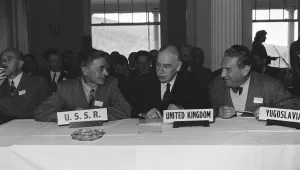International Security is America's leading peer-reviewed journal of security affairs.
Summary
Many policy analysts have suggested that China is developing antiaccess and area denial capabilities that could force the U.S. military out of the Western Pacific. The threat, however, is limited. China will likely acquire the ability to partially restrict the U.S. military's freedom of movement in the East and South China Seas, but the United States will maintain a sphere of influence sufficient to protect most of its allies in the region.
Biddle, Stephen and Ivan Oelrich. “Future Warfare in the Western Pacific: Chinese Antiaccess/Area Denial, U.S. AirSea Battle, and Command of the Commons in East Asia.” Summer 2016





